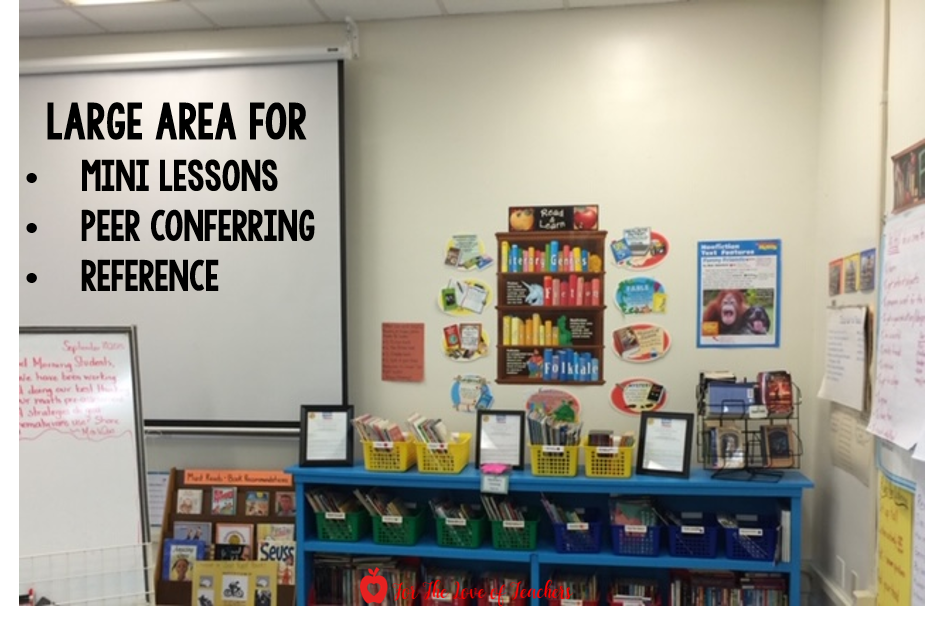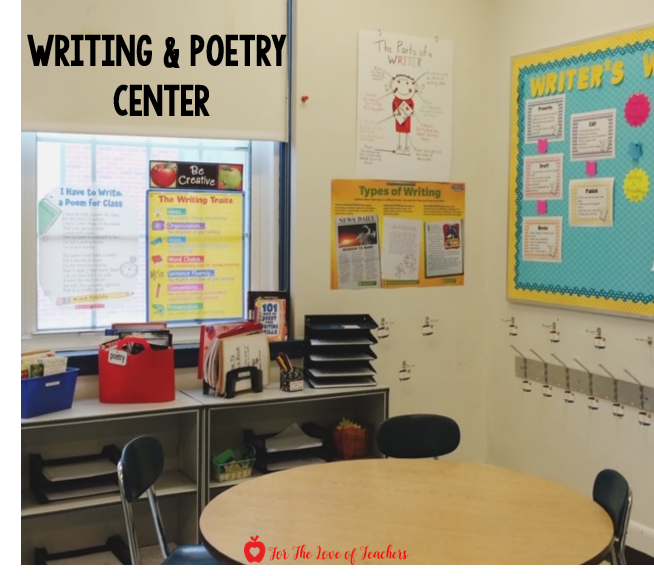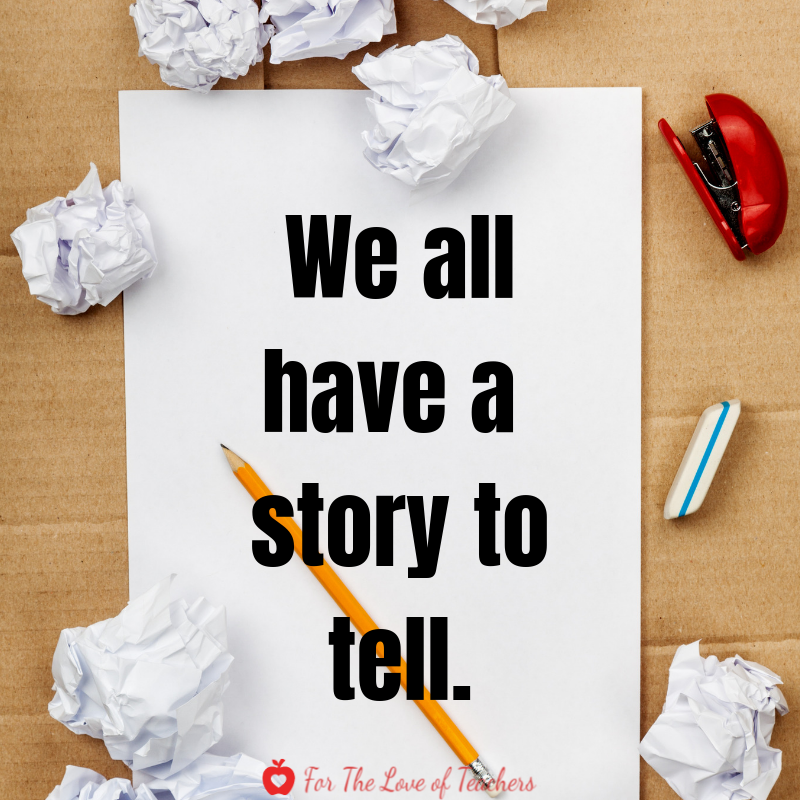I write a lot about creating a community of writers by sprinkling my writing magic to transform students into writers. And not just any writers, writers who actually love to write and want to write. But what about those reluctant writers? The ones that despise writing, think that they have nothing to write about, or think that they are not good at writing. They moan and groan at the thought of writing. They spend most of their writing time producing little to no writing at all. Know any of these? Many of these reluctant writers are boys, many of them had not have had quality writing instruction, and many of them have not been given the right tools they need to reach their fullest potential as a writer. Teaching and reaching those reluctant writers is no easy task. Here are 5 ways to get your students out of the reluctant writer’s rut.
How enthusiastic are you about writing? Do you write yourself? Do you write in front of your students? Do you model what good writing looks like and sounds like as you think and write aloud? These are all very important things you need to do in order for your students to buy into this whole writing thing. Your enthusiasm is a source of inspiration and is contagious. You must find the writer deep inside yourself to get comfortable with being uncomfortable about writing yourself and sharing your own writing with your students. Now if you’re shaking your head at this idea thinking there’s no way you’re ever going to be enthusiastic about your own writing, then get enthusiastic about someone else’s writing. Choose your favorite author and use their writing as a mentor text. Select parts of the writing that speak to you, teach you something or align with what you’re teaching your students, like the lead, voice, character description, etc. and use it to inspire your students to try it. Let them see good examples of great writing and get pumped up to do the same thing the writer did in their writing.
I’ve had lots of success with the Writer’s Workshop model to establish a classroom environment and a community of writers. In order to do this you must set the stage for the writing environment by clearly establishing the locations in your classroom for the components of Writer’s Workshop: Mini Lesson, Independent Writing, Conferring (both teacher and peers), and Share. Find a defined space for each. I teach my mini-lessons in a large group area in my classroom library which surrounds us with all the mentor texts and reference tools that writers need to learn from the experts and to do additional research. This is where you teach your writers using mentor texts and other models of good writing. Read my post, Teaching Writing With Mentor Texts for some ideas and lesson plans. I designate the table in my writing center for teacher-student conferences and the large carpet in my library for peer conferences. My students work at their desks to independently write and revise. We share mostly in whole group, but you can share in small groups too. Once you have the classroom environment established with clear expectations and guidelines for writing, you’ll see that your students will act as writers and write like writers producing quality writing.


Table for Teacher-Student Conferences and Small Group Teaching
I have a few resources to help you to organize and manage Writer’s Workshop:
Writer’s Workshop Modeling Script
How To Organize & Manage Writer’s Workshop Video Tutorial
Writer’s Workshop Boot Camp Mini Course
You could find more information about Writer’s Workshop at For The Love of Writing.
Choice is power. When students have a choice about what they can write about they are less reluctant to write. Let them write about what they know and what they can teach others. Let them write about their passions and interests. Let them write about something that lights a fire inside them. Let them write about something they have a voice about. As the teacher, you can still have control in teaching within each genre but let them choose the topic and form. For example, in persuasive writing, a student who really wants a pet may write a letter to their parents convincing them to get a puppy with supporting reasons and details. A student who is creative and imaginative might write an action-packed fantasy with out of this world characters and your student who is a wealth of knowledge may want to write an informative to teach the whole class about antique cars. When students write about what they know and love they will WANT to write. You may even have a hard time getting them to stop writing. 😉
I use storytelling to motivate students to write. I recently attended a mass where the priest spoke about us all having a story to tell and to tell your story to those who will listen. Those who listen are your people. This spoke to me because this was something I always told my students to motivate them to write. Sometimes they didn’t know what to write about or thought that what they had to say wasn’t important. But when we share our stories and listen to each other’s stories it is powerful. Building relationships are all about sharing and listening to each other. So let them tell their story, any story, and listen to it. It just might be what they need to get them writing. Read more about how I use storytelling to motivate my students to write in this post, Inside a Teacher’s Bag of Tricks: The Storytelling Hook.
Conferring with teachers and peers is the best way to get feedback to develop the writer. When you have opportunities to confer with peers to help grow you as a writer, the writer builds confidence. I “train” my students to become writing coaches. Conferring with peers to give and receive meaningful feedback allows students to share and discuss different ideas, especially when they are stuck, and to get another’s perspective. This needs modeling and practice in order to be effective. I had a designated area in my classroom (our whole group mini-lesson area) where a pair of students would meet and sit side to side, shoulder to shoulder and thigh to thigh with one of the student’s writing piece in front of them to focus on one at a time. The students may say or ask their peer, “I need help with…” “Can you listen to…?” “I’m stuck here…” “I need suggestions for…” Then the students return to their own writing and revise taking into consideration the suggestions that were made during the peer conference. I encourage students to have multiple peer conferences to get more than one perspective and as much feedback as they can to improve the writing. We use these feedback sticky notes and posters. They are an effective way to encourage feedback between teacher, students, and peers. It keeps peers focused by giving valuable feedback when conferring with each other.
So, it may not be easy to teach and reach your reluctant writers but I’ve had great success using these 5 strategies to support them. Give it a try and sprinkle some of your very own writing magic to get your students out of the reluctant writer’s rut.
How do you support reluctant writers?
Related Posts:
4 Ways To Get Students to LOVE Writing
How To Make Choosing a Topic Less Painful
Check out My Football Writing Process Theme-–Perfect for your reluctant writers, boys or a game based classroom.
Need support? Visit the Forums to ask questions, share ideas and products. Follow me to be notified when new resources are uploaded to the Shop and join the email list to receive the latest and greatest updates, posts, and monthly freebies!!
If you like it, then pin it,



Christine Weis is a passionate educator, classroom management coach, wife, and mom of two busy boys. She enjoys teaching, writing, and creating resources for teachers.










I’m a retired elementary teacher and I so enjoyed reading your post. I love to write and I love reading about others who love to write! I’m sharing this post with my students who are taking my summer course in Language Arts.
HI Terri! Thank you so much! That means a lot coming from a fellow elementary teacher. I LOVE to write too. In fact, I am obsessed with my blog. LOL! I love to share with other teachers and support them in this challenging profession. Please do share with your students. Thanks for reading!!!
Christine at For The Love of Teachers
These are great tips! I can definitely use them in inspiring creativity to my kids!
Oh, that’s great! I’m so glad! Thank for reading!
Christine at For The Love of Teachers
Great! I’m so glad! Thanks for reading!
Christine at For The Love of Teachers
I love your 5 ways to get your students writing again. Kids have so much in their mind that they could tell/write about. Your ideas make so much sense to get kids writing again.
I think it’s all about helping them realize that they do have so much to write about in so many forms and genres. Thanks for reading!
Christine at For The Love of Teachers
I usually give them a reward if they produce a good content. It’s all about a little motivation. Guide them!
Yes, a little extrinsic motivation does work. I try to really help my students become intrinsically motivated as well. Thanks for reading!
Christine at For The Love of Teachers
I like that “everybody has a story to tell.” That is so true. My son had difficulty with this when he was a young child, but his teacher recognized this and was able to make him “come out of his shell.” I will share this post with a friend who is a grade school teacher. She will find this very helpful.
Yes!!! She made him come out of his shell!!! I’m so happy to hear that. Getting students to tap into their writing potential, make them feel they have a voice and CAN write about anything they want to write about is so important to develop writers. Thanks for passing this post along to your friend. I hope she finds it helpful.
Thanks for reading!
Christine at For The Love of Teachers
First of all Thank you for being a wonderful teacher to your students. I know being a teacher gets harder and harder over the years but you are I am sure appreciated by your student’s and their parents.
I think with the success rate you have had with your process it just shows that it works.
Thank you so much, Brianne. Teaching has certainly changed over the years and continues to be a challenge BUT I love it.
I really enjoy sharing with others what works and where I’ve seen the most success to support teachers and students. Thanks for reading!
Christine at For The Love of Teachers
I would love to see real, intellectual writing make a come back. I get tired of reading poorly written articles from adults.
Yes, me too! Writing is so important to teach from early childhood straight through college. Thanks for reading!
Christine at For The Love of Teachers
I never took writing very seriously in school. We were forced to write about things we didn’t care about.
Ah, yes! That’s the problem. When kids are forced to write what they don’t care about it causes them to HATE writing. I want them to write about what they LOVE, are passionate and interested in. Thanks for reading!
Christine at For The Love of Teachers
My cousin sis is a teacher and she has a lot of students who even hate writing during the exams 😀 will be sharing this post with her 🙂
So many students hate writing, especially for exams. Thanks for passing this along. I hope it helps!
Thanks for reading!
Christine at For The Love of Teachers
Hmm, this may not work for me when I was younger. I really do not have an interest in writing at that time. I think young book readers can keep their enthusiasm for writing activities.
Many children, especially boys, do not have an interest in writing at a young age. I have consistently used these 5 strategies and have always been successful. I have a knack for getting my most reluctant writers to LOVE writing.
Thanks for reading!
Christine at For The Love of Teachers
It is a great idea in itself. And I love the way to go about it. It is to unearth the hidden talents.
Agreed and thank you! I believe all have hidden talents. Thanks for reading!
Christine at For The Love of Teachers
This sounds like some great tips. When I have writer’s block, I step away to do something else and then come back to it later.
That’s a great strategy for writer’s block! Walking away to think and reflect is so important for moving forward. Thanks for reading!
Christine at For The Love of Teachers
If I have writer’s block, I have to simply WALK AWAY and come back later. Otherwise it will continue and I will stress out!
Yes…for sure! Walking away is smart. COming back to the writing with fresh eyes and idea leads to more productivity. Thanks for reading!
Christine at For The Love of Teachers
I have always enjoyed writing and now all three of my kids excel in that area as well. Perhaps sharing some of my personal writing experiences has inspired them in some way.
I find that because I LOVE writing and am so enthusiastic about it my students are encouraged and inspired. They too begin to love it and WANT to write. It’s an amazing transformation. Your love of writing and sharing your experiences has definitely inspired your own children. Thanks for reading!
Christine at For The Love of Teachers
These are great tips for cultivating young student writers. Would love to read some!
Thanks so much! Thanks for reading!
Christine at For The Love of Teachers
I think this is going to get a lot of kids excited about writing again. Writing can be daunting and/or boring to a lot of kids. If you can make it fun, you’re already almost there!
Writing can definitely be daunting and intimidating. Our writer’s workshop is always fun and encourages students to write. Thanks for reading!
Christine at For The Love of Teachers